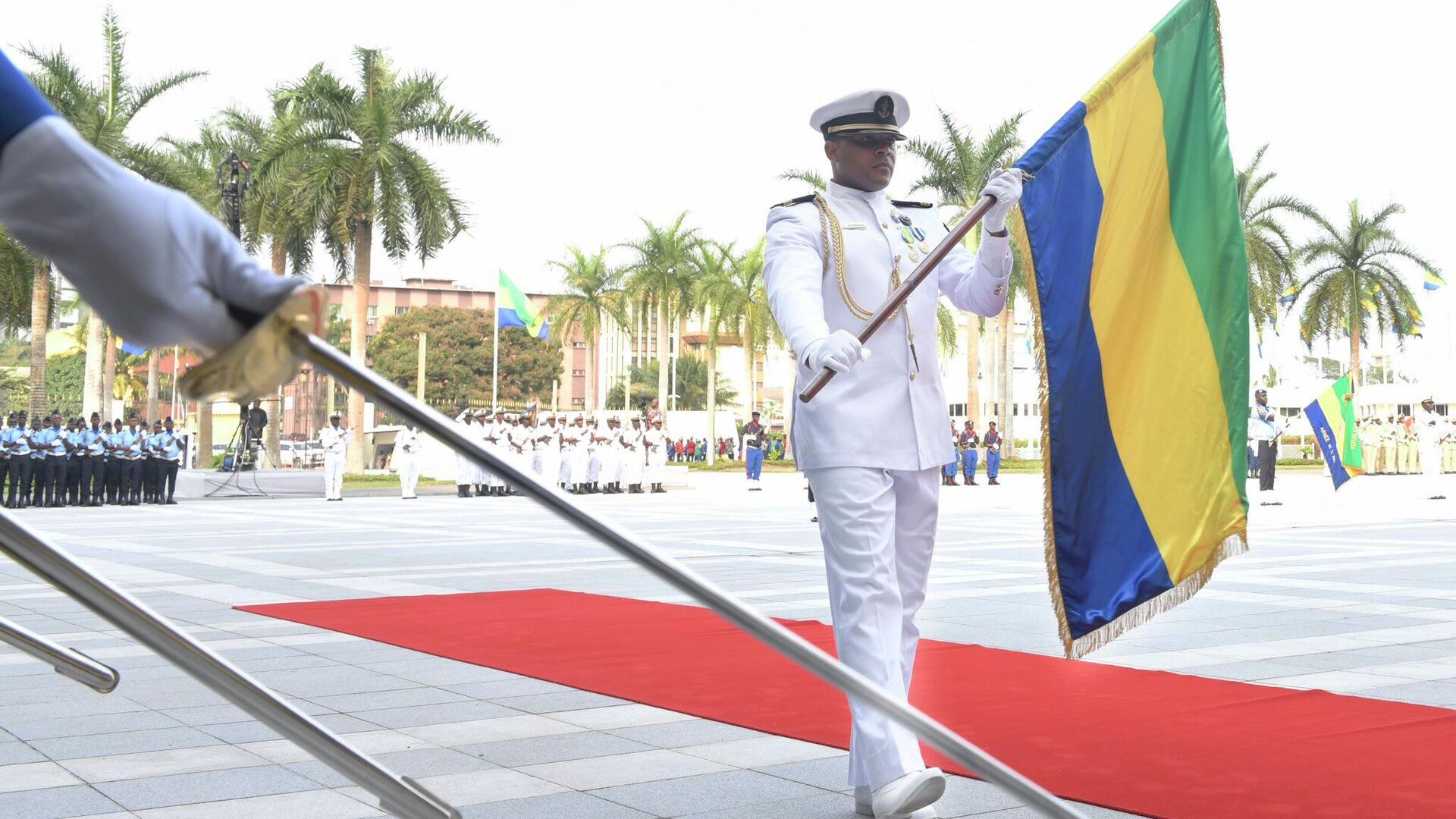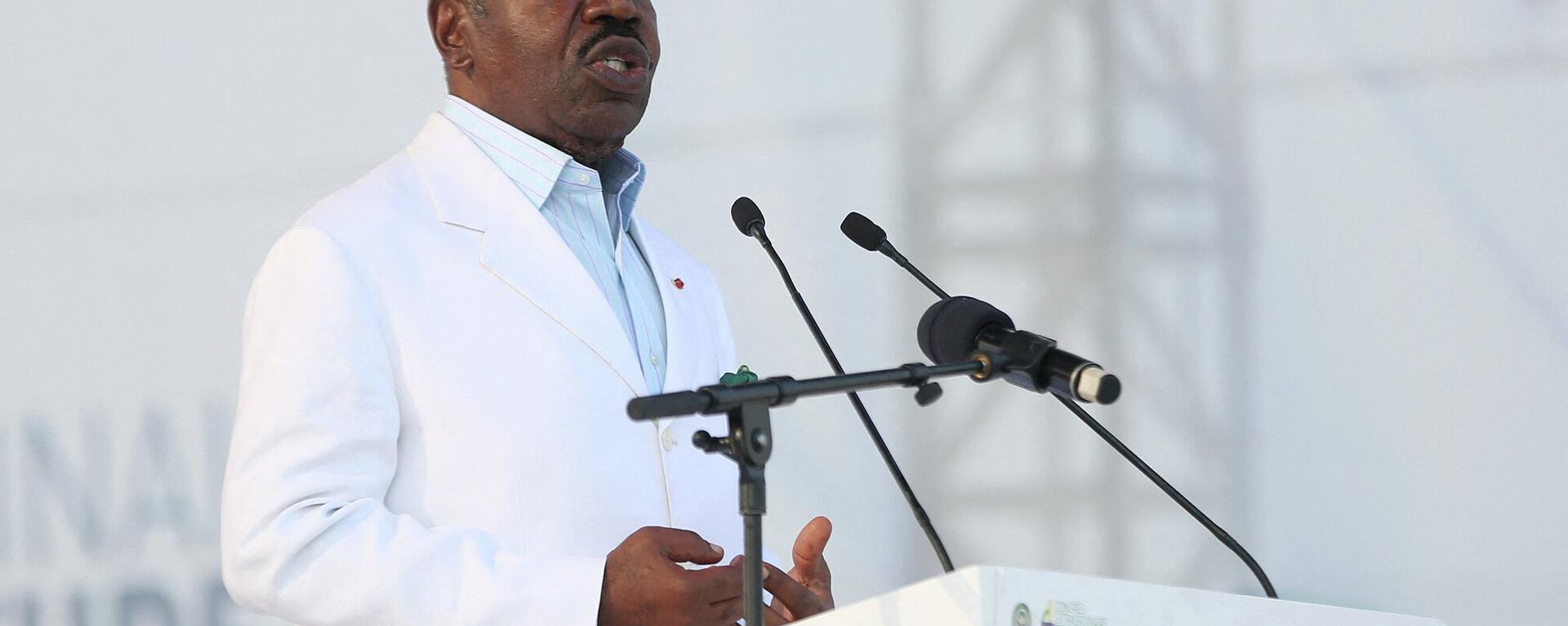https://en.sputniknews.africa/20230826/gabon-election-2023-how-electoral-system-works-1061641473.html
Gabon Election 2023: How Electoral System Works
Gabon Election 2023: How Electoral System Works
Sputnik Africa
In April, a few months before Gabon's general elections scheduled for this Saturday, the parliament voted to reduce the presidential term from seven to five... 26.08.2023, Sputnik Africa
2023-08-26T11:25+0200
2023-08-26T11:25+0200
2023-08-26T11:25+0200
features
central africa
gabon
presidential election
elections
parliament
opposition
politics
https://cdn1.img.sputniknews.africa/img/07e7/08/1a/1061641756_0:50:2048:1202_1920x0_80_0_0_badc3d54446ab87176afc1f34cd6d69f.jpg
As Gabonese voters are heading to the polls on August 26 for presidential, legislative and local elections, which officially began at 07:00 GMT, Sputnik Africa outlines the key details of the ongoing vote.Presidential Candidates Gabon's electoral commission validated 19 candidates to run in the presidential election.Incumbent Gabonese President Ali Bongo Ondimba of the Gabonese Democratic Party (PDG), who has been Gabon's leader for almost 14 years, is running for a third term. He took office in 2009, following in the footsteps of his father, Omar Bongo Ondimba, who led the nation for 41 years. Ali Bongo was re-elected in 2016, securing a narrow victory within a range of 5,500 votes. His main rival Jean Ping, Gabonese diplomat and politician, claimed the polls were rigged. The announcement of the previous presidential election results led to widespread anti-government demonstrations, clashes, and thousands of arrests.This year, in his wide-ranging presidential campaign, the incumbent leader promised to create more jobs opportunities, expand microcredit programs and lower public school fees.Bongo's leading rivals for the post include Alexandre Barro Chambrier of the opposition Rally for the Fatherland and Modernity party (RPM), Gabonese politician and member of the National Parliament who served as Gabon's Minister of Oil, Mining and Hydrocarbons in 2011-2012, and leader of the National Union Party Paulette Missambo. Other candidates include Raymond Ndong Sima, a former prime minister, and Pierre-Claver Maganga Moussavou, the founder and leader of the Social Democratic Party.Earlier, six of the main opposition parties said they chose a joint candidate to narrow the race to unseat Bongo. According to their opposition alliance known as Alternance 2023, the parties agreed to support the candidacy of former minister and university professor Albert Ondo Ossa. The joint opposition candidate, who is a professor of economics and management at Omar Bongo University, campaigned on the need for change and better economic opportunities in the country.Gabon's Electoral System Gabon has no constitutional term limits on the presidency. There was a two-term limit for the president, but it was lifted for Omar Bongo in 2003.In April this year, the Gabonese parliament voted to amend the constitution and reduce the president's term from seven to five years. Other constitutional amendments include the introduction of a single ballot that requires voters to choose a presidential candidate and lawmaker from the same party.The presidential ballot will coincide with elections for the National Assembly and regional and local councils. The 143 members of the National Assembly are elected from single-member constituencies in a two-round system. Bongo's PDG currently holds strong majorities in the country's parliament, which makes the party the most likely favorite.Vote counting will begin after the polls close at 17:00 GMT. However, it is not yet clear when preliminary results will be announced.
https://en.sputniknews.africa/20230812/choice-of-reason-gabonese-reportedly-support-incumbent-president-in-approaching-elections-1061284656.html
central africa
gabon
Sputnik Africa
feedback@sputniknews.com
+74956456601
MIA „Rossiya Segodnya“
2023
News
en_EN
Sputnik Africa
feedback@sputniknews.com
+74956456601
MIA „Rossiya Segodnya“
Sputnik Africa
feedback@sputniknews.com
+74956456601
MIA „Rossiya Segodnya“
central africa, gabon, presidential election, elections, parliament, opposition, politics
central africa, gabon, presidential election, elections, parliament, opposition, politics
Gabon Election 2023: How Electoral System Works
In April, a few months before Gabon's general elections scheduled for this Saturday, the parliament voted to reduce the presidential term from seven to five years. The constitutional amendments also changed the presidential election to a single round by majority vote.
As Gabonese voters are heading to the polls on August 26 for presidential, legislative and local elections, which officially began at 07:00 GMT, Sputnik Africa outlines the key details of the ongoing vote.
Gabon's electoral commission validated 19 candidates to run in the presidential election.
Incumbent Gabonese President
Ali Bongo Ondimba of the Gabonese Democratic Party (PDG), who has been Gabon's leader for almost 14 years, is running
for a third term. He took office in 2009, following in the footsteps of his father, Omar Bongo Ondimba, who led the nation for 41 years.
Ali Bongo was re-elected in 2016, securing a narrow victory within a range of 5,500 votes. His main rival Jean Ping, Gabonese diplomat and politician, claimed the polls were rigged. The announcement of the previous presidential election results led to widespread anti-government demonstrations, clashes, and thousands of arrests.
This year, in his wide-ranging presidential campaign, the incumbent leader promised to create more jobs opportunities, expand microcredit programs and lower public school fees.
Bongo's leading rivals for the post include
Alexandre Barro Chambrier of the opposition Rally for the Fatherland and Modernity party (RPM)
, Gabonese politician and member of the National Parliament who served as Gabon's
Minister of Oil, Mining and Hydrocarbons in 2011-2012, and leader of the National Union Party
Paulette Missambo.
Other candidates include Raymond Ndong Sima, a former prime minister, and Pierre-Claver Maganga Moussavou, the founder and leader of the Social Democratic Party.
Earlier, six of the main
opposition parties said they chose a joint candidate to narrow the race to unseat Bongo. According to their opposition alliance known as Alternance 2023, the parties agreed to support the candidacy of former minister and university professor
Albert Ondo Ossa.
The joint opposition candidate, who is a professor of economics and management at Omar Bongo University, campaigned on the need for change and better economic opportunities in the country.
Gabon has no constitutional term limits on the presidency. There was a two-term limit for the president, but it was lifted for Omar Bongo in 2003.
In April this year, the Gabonese parliament voted to amend the constitution and reduce the president's term from seven to five years.
The president is now elected for a five-year term in a single round of voting by plurality. The first-place finisher is deemed elected, regardless of whether the candidate received an absolute majority of votes.
Other constitutional amendments include the introduction of a single ballot that requires voters to choose a presidential candidate and lawmaker from the same party.
The presidential ballot will
coincide with elections for the National Assembly and regional and local councils. The 143 members of the National Assembly are elected from single-member constituencies in a two-round system. Bongo's PDG currently holds strong majorities in the country's parliament, which makes the party the most likely favorite.
Vote counting will begin after the polls close at 17:00 GMT. However, it is not yet clear when preliminary results will be announced.


